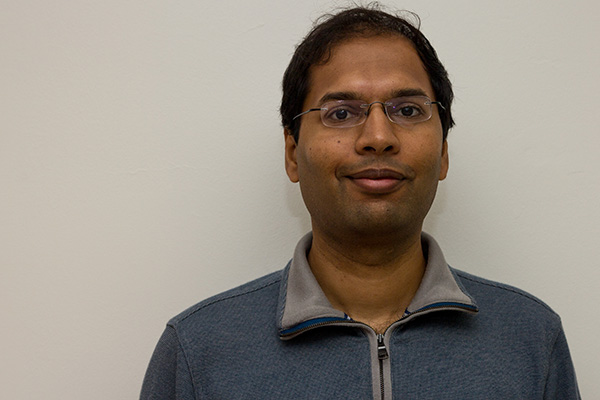Mathematics professor wins award
September 18, 2014
Subhash Khot, an NYU mathematics professor, is no stranger to getting into situations with no solution.
In fact, he seeks out dire, unsolvable problems — NP-hard problems. These types of math problems involve solutions that are typically very difficult to approximate, let alone solve.
Khot was recently awarded the Rolf Nevanlinna Prize for his theory, called the Unique Games Conjecture, which aims to achieve the closest feasible solution to NP-hard problems.
Khot attributes his success to his upbringing in his hometown of Ichalkaranji, Maharashtra in India, decisively teaching himself to compensate for the dearth of educational facilities.
Only awarded to mathematicians below the age of 40, the prize is often considered to be the most prestigious of all accolades for computer scientists. It is awarded only every four years to applied mathematical breakthroughs. NP-problems are essential, yet so incredibly demanding that other awards have been created specifically for problems similar to it, such as the Clay Institute’s award for the P versus NP problem, which will award $1 million for its solution.
Nearly everything in math, from graphing and theory to games like Tetris and Battleship, is solvable with the NP-problems Khot wrangles with. Now, with the possibility of Khot’s solution being the closest to solving the NP-hard problems in polynomial time, there is a chance to solve every other NP-problem in polynomial time as well.
There is no doubt that the theory is difficult to explain, even to students who study the subject. Khot tries to relate it to everyday life in terms of distance and time.
“For example, you have a salesperson who has to go to a number of cities in a definite period of time. The job now is to find out the shortest time period and shortest distance required to visit all the cities,” Khot said, to explain the time objective of the problem.
Professor Bud Mishra, one of Khot’s colleagues, is interested in the possibilities of Knot’s discovery.
“Subhash Khot is one of our great complexity theorists, and has energized a deep debate about certain unsolved questions about intractability in computation,” Mishra said.
Khot considers this award not only a recognition of his work, but also a way to create awareness about his field in the larger theoretical computer science realm and, in turn, the entire mathematical community.
“Typically, behind any invention there is hard work and a final flash,” Khot said. “You have one bright day and there is a flash. Most of [your attempts] would fail, but you have to be in this state of mind where you are constantly thinking about it.”
Additional Reporting by Hannah Treasure. A version of this article appeared in the Thursday, Sept. 18 print edition. Email Tejas Sawant at [email protected].













































































































































